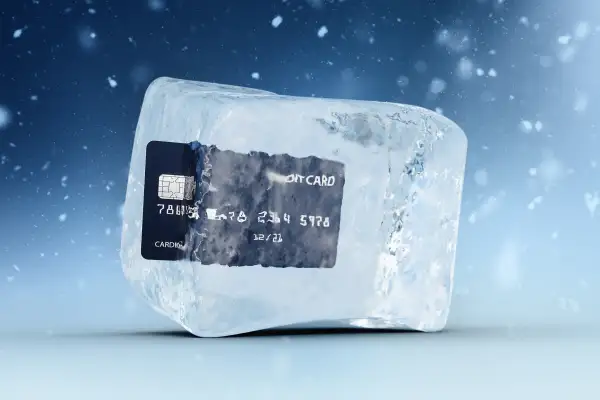Freezing Your Credit Can Protect You Against Identity Theft, but Few Consumers Take Advantage

If you're not sure why or when to freeze your credit, you're not alone.
While more than three-fourths of consumers said they were familiar with the credit freeze process, 71% have never actually used this crime prevention tool, according to a recent survey published by the Identity Theft Resource Center (ITRC). The biggest reason consumers reported for not freezing their credit was because they didn't think it was necessary. To a lesser degree, some respondents (11%) avoided putting their credit on ice because they mistakenly believed it will impact their credit score or that they'll have to pay to freeze or thaw their credit.
Of the 73% of consumers who believed their personal information had been impacted by a data breach, only 3% froze their credit after receiving a data breach notice, the survey found.
“A credit freeze is generally considered the most effective tool to prevent new accounts from being opened in your name," Eva Velasquez, President and CEO of the ITRC, said in a press release announcing the survey results. The online survey took place last summer and covered 1,050 U.S. adult consumers.
Here's what to know about freezing your credit:
What is a credit freeze?
Putting a freeze on your credit halts access to your credit report, so bad actors won't be able to open a new credit account in your name. They're completely free.
The process also blocks you from opening up new accounts. But don't worry if you want to apply for a new rewards credit card or other type of credit — you can lift the freeze temporarily to do so, the Federal Trade Commission explains.
When should you freeze your credit?
Hackers just won't quit. By the end of September, the number of publicly reported data compromises in the U.S. had already surpassed the total number of compromises in 2020 by 17%, according to the ITRC.
By now, you may be familiar with the notifications companies send out when they've been breached, like the note the popular trading app Robinhood sent to users last month when millions of people had their emails or full names exposed, and around 310 had their birthday and zip codes exposed in a data breach.
If you are notified that your data has been compromised — or if you lose your wallet — it's a good idea to protect your information by freezing your credit so that criminals can't use the stolen information to open a new account in your name.
How to freeze your credit
You can implement a credit freeze by contacting the three major credit bureaus: Equifax, Experian and TransUnion. The FTC has contact information for each bureau here.
Money also has an entire guide to freezing your credit, and how to determine if it makes sense for you.
More from Money:
2021 Is on Pace to Break the Record for Most Data Breaches Ever
What Happens to My Personal Information After a Data Breach?




